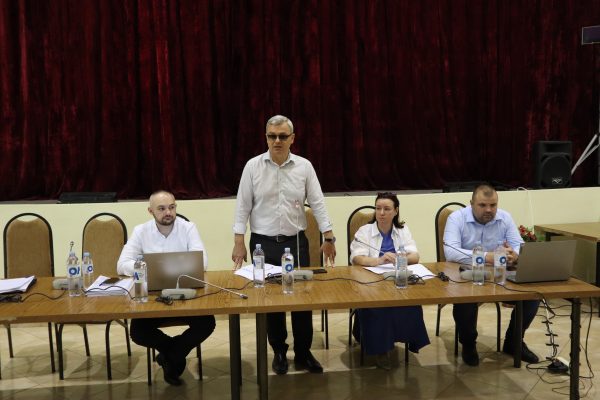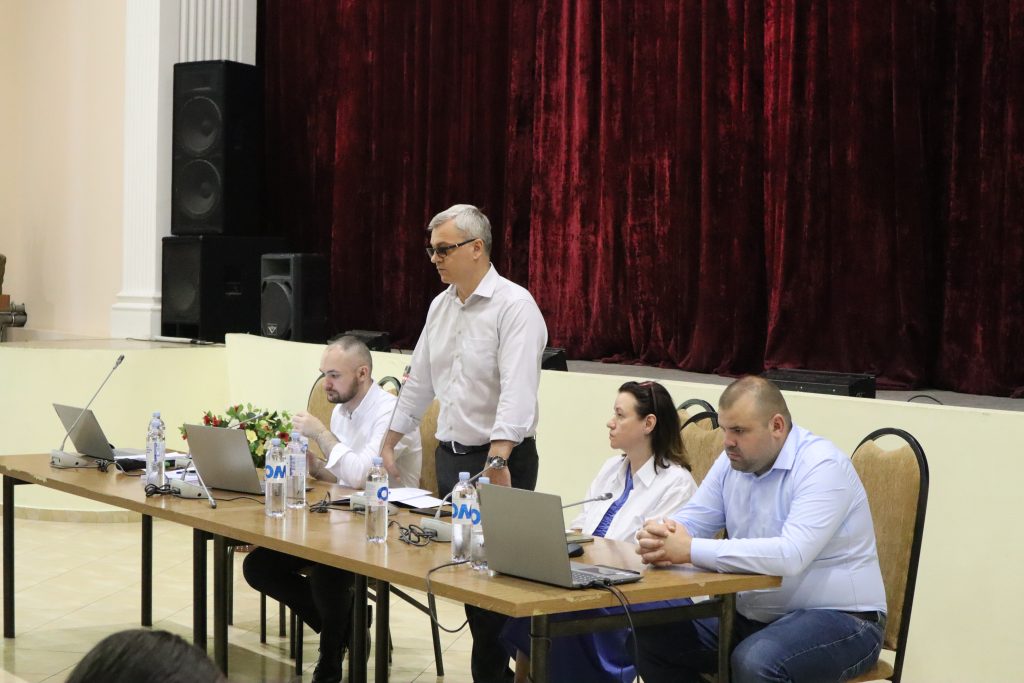The Ministry of Labour and Social Protection presented the concept of the Strategy for Strengthening Temporary Accommodation Centres for Refugees

The Ministry of Labour and Social Protection today presented the concept of the Strategy for StrengtheningTemporary Placement Centres for Refugees (CPTRs) at a meeting with centre managers. The strategy reflects the mechanisms for reorganising and optimising the work of the CPTR and aims to integrate refugees from Ukraine into society.
The actions foreseen in the strategy are based on the principle of respect for the rights of refugees and involve measures to assist the beneficiaries of temporary placement centres to find employment, education and, if necessary, social protection.
Vasile Cusca, State Secretary: “We need to focus on the social integration of the refugees. Through this strategy we aim to help them find a job, a place to live, enrol their children in kindergartens and schools. I want to emphasise that no one will be forced to leave temporary accommodation centres. We will talk to each individual beneficiary, explain the benefits and find the best solutions for each of them.”
The concept of the Strategy for Strengthening Temporary Accommodation Centres for Refugees was developed on the basis of a prior assessment, which examined the management and living conditions in the accommodation centres, the cost-effectiveness of their operation, the occupancy rate, the vulnerable groups hosted by each centre.
Subsequently, based on the results of this assessment, the Ministry of Labour and Social Protection and development partners drew up criteria and guidelines for the reorganisation or closure of temporary accommodation centres for refugees.
At the same time, possible solutions for the beneficiaries of the centres to be closed were established. Thus, depending on certain eligibility criteria, refugees in CPTRs will be able to benefit from financial support for renting accommodation, granted for a period of six months, or other options for securing a place to live, such as integration into families willing to host refugees or relocation to another temporary accommodation centre. They will also be guided and assisted by the National Employment Agency in the process of identifying and finding a job.
During the meeting, the administrators of the centres had the opportunity to present their opinion on the strategy proposed by the Ministry and to come up with recommendations to improve it. At the same time, they discussed the current work of the temporary accommodation centres for refugees, their functioning and organisation, as well as the funding mechanism. It should be noted that, at the present stage, there are 53 temporary placement centres for refugees operating in the Republic of Moldova.











